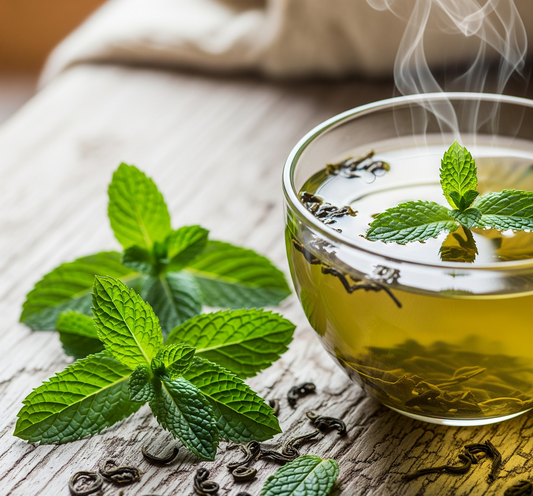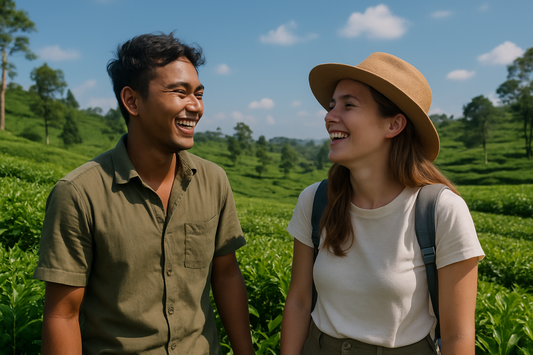Before I ever made the personal connection between my caffeine habits and sleeplessness, I was very fatalistic about my bout with insomnia. My last coffee of the day would be at around 7 PM, right before dinner, and I’d lie in bed hours later wide-awake wondering why I couldn’t sleep like a normal person.

It wasn’t until I put a stop the caffeine intake by 5 PM to be on the bed for the night by 10 PM that I developed a better relationship with sleep. It took time but *touchwood* my sleep cycle has gotten better finally.
It makes sense because research has shown how caffeine interferes with circadian melatonin rhythms delaying the onset of sleep when consumed close to ones bedtime.
My first look into tea and caffeine
A study closely examined the impacts of caffeine intake before bedtime and found that caffeine as early as six hours before the bed time could reduce the sleep time by an hour. The participants of the studies also reported disrupted sleeping patterns upon caffeine content zero to three hours earlier than the bed time.
So obviously I’ve been cutting down on my coffee intake. I did this instinctually, without much research into the topic myself.
Upon joining Nepal Tea Collective, I’ve started drinking a few cups of teas (when I visit the tea gardens the few cups quickly turned into six to seven cups full). And of course, drinking a first flush orthodox black tea is nothing like drinking a cup of sugarless black coffee but I’ll be honest I felt a little twitch in the stomach when I heard the tea makers talk about caffeine content in their teas.
Did I think all teas were decaffeinated by its mere nature?
Yes absolutely.
Was I wrong in thinking that only coffee contained caffeine? Yep, so very wrong.
Because lo and behold, teas have caffeine too. Just not as much as that bitter joe.
So, naturally my next questions were which teas are caffeinated and are organic teas caffeine free?

Caffeine content in different teas
Caffeine occurs naturally in Camellia sinensis, the evergreen tea plant. All true teas- green tea, oolong tea, white tea, pu-erh tea and black tea, contain some amount of caffeine.
Here’s where things get super interesting, at least for me. The amount of caffeine intake when it comes to tea isn’t set on stone. The parameters varies for each individual because it depends on what type of tea you want and how you want it.

Teas brewed in hotter water and steeped for a longer time will draw out extra amounts of caffeine from the leaves. So, teas like green and white tea whose flavors thrive in cooler water and shorter steeping time will amount to lesser caffeine intake for the drinker. For teas like black tea and oolong tea that usually come with a recommended steeping time of five minutes will naturally have a lot more caffeine.
Naturally, tea leaves contain 3.5% caffeine while coffee beans contain only 1.1-2.2% of caffeine. But since coffee beans are roasted and prepared in extremely hot water unlike your teas and the sheer amount of coffee beans needed for a cup of joe compared to teas also adds up.
So that famous claims teas being completely caffeine free is a hoax?
Well, this also depends on what you call tea. Tea experts and connoisseurs consider only true teas i.e. the loose-leaf orthodox tea without any additional ingredients to be teas. Anything else, for them, is called tisane.

But if you want to move away from all technicality and jargons of this niche industry and simply enjoy a caffeine free experience, herbal teas and tea blends are the way to go. Speaking from personal experience, Nepal Tea’s Lemongrass teas or Golden Milk that use natural organic ingredients without the tea leaves make for a wonderful before-bed ritual!




